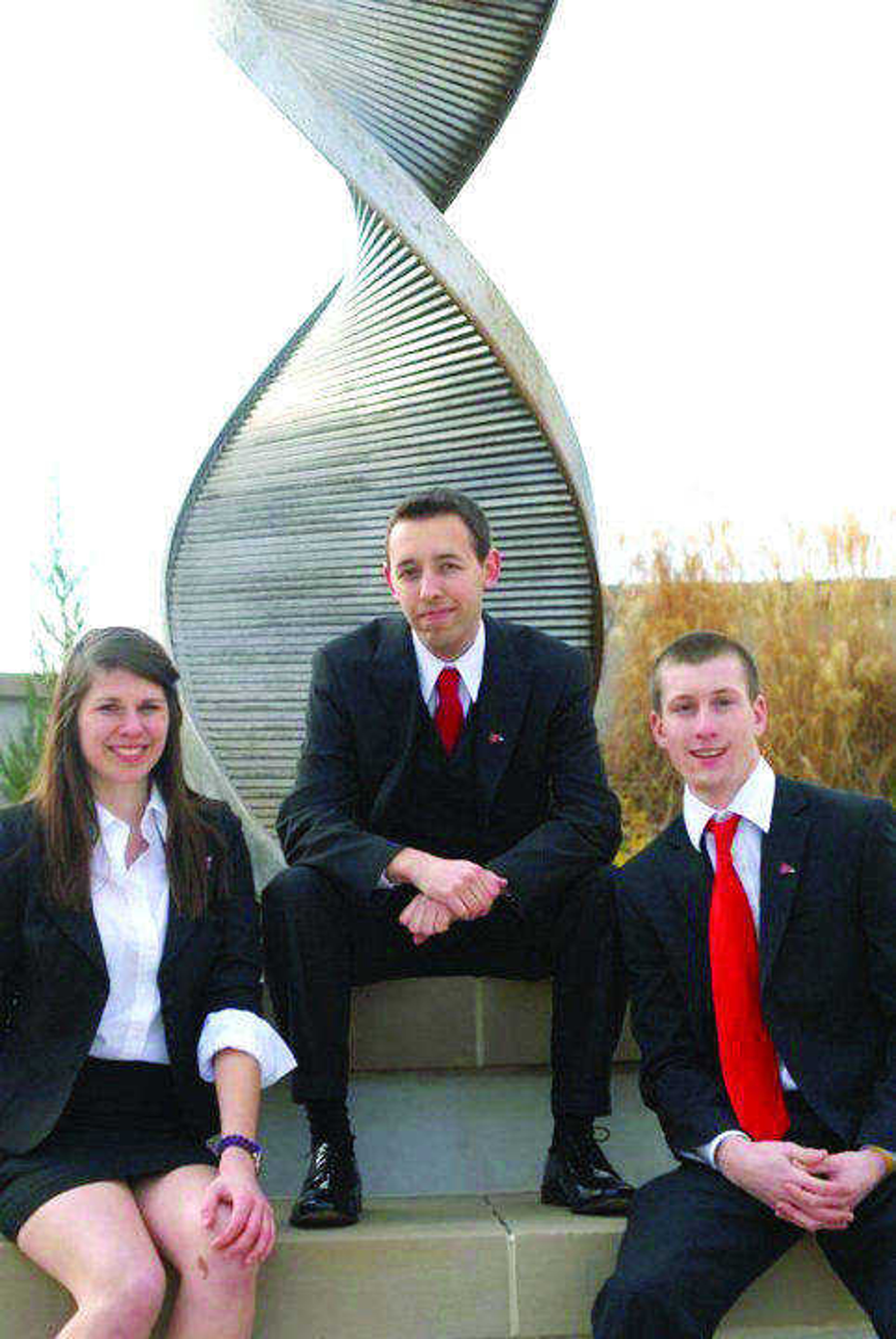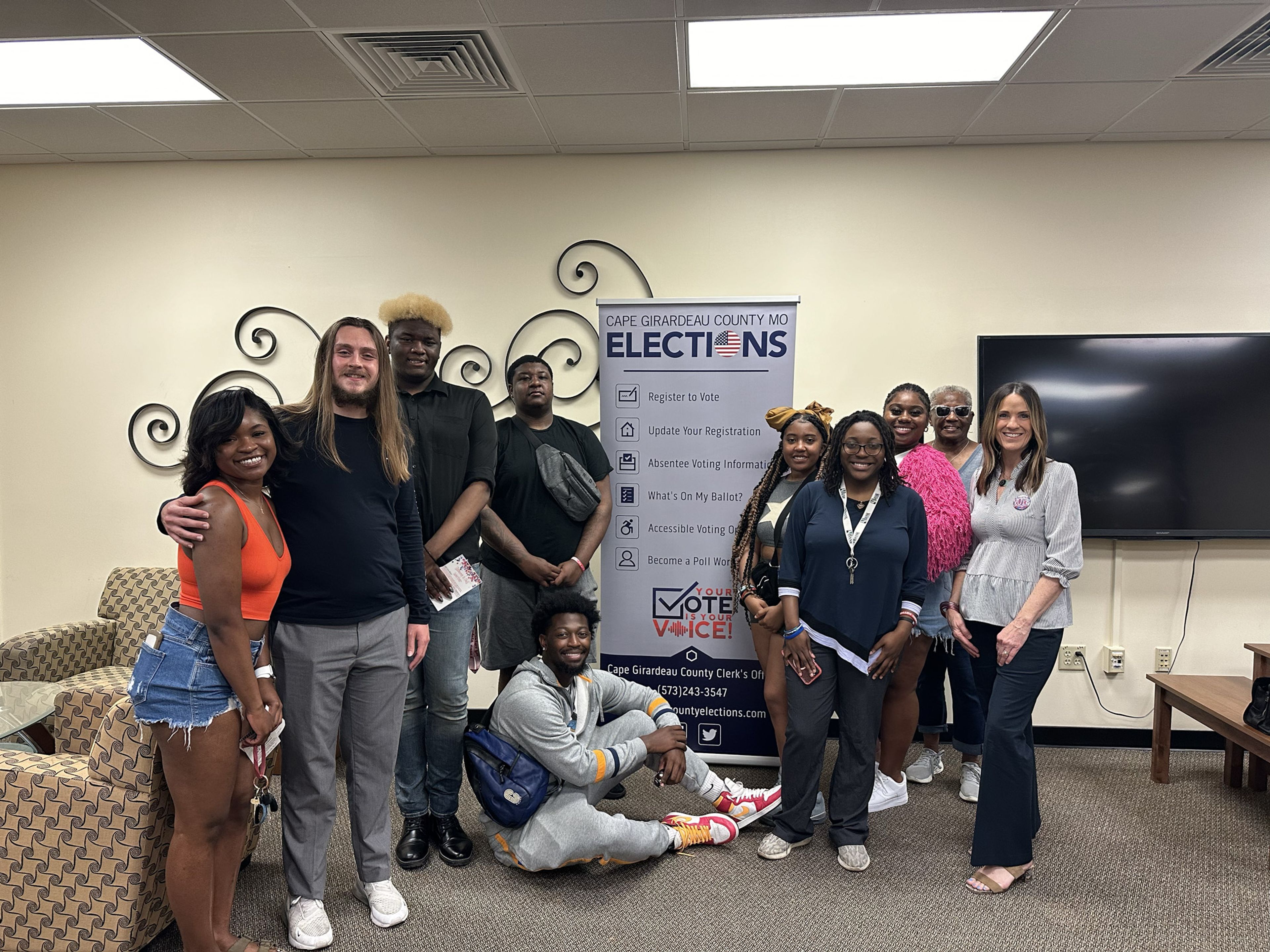Though it is early in the year, newly elected members of the Executive Board of the Student Government Association have already outlined a few objectives for the school year.
Southeast Missouri State University student body President Patrick Vining, Vice President Greg Felock and Treasurer Emilee Hargis, who ran together on one ticket and were elected in a general election this past April, have three major goals to put into effect this year.
"We are wanting to find a better way to communicate with the student body and administration," Vining said about their first goal, which is centered on effective communication through better relationships.
Their second goal is to become more relatable to their constituents, including all students as well as student organizations and Cape Girardeau residents.
The third goal on their agenda is to establish a complete transparency and accountability to the campus community, a topic that they heavily emphasized during their campaign.
SGA was created to serve as a liaison between the student body as a whole and the administration that runs the university as well as a support system to on-campus organizations.
"Student Government serves as a vehicle for student opinion," Vining said. "It's important for us to be able to represent students."
The Executive Board branch of SGA would not be functional without its other branch, the Senate. Each college and school in the university has four representatives that are active in SGA meetings. This year, an emphasis will be placed on making sure that Senators fulfill their mission to represent their section of the university.
"We want to make sure the four Senators represent their colleges," Felock said. "That they are talking to their college councils and hearing their goals."
Though SGA has to meet with university administration to make major decisions, they agree that the higher-ups value their input.
"There is a lot of autonomy," Vining said. "They look to us for a lot of feedback."
"They base their decisions after us nine times out of ten," Felock said about the administration.
Though the Executive Board plans to consult with the Senate and university administration before compiling a complete list of goals, they already have begun to enact a few changes. They will hold several town-meeting type gatherings to which the entire student body will be invited.
"We want to see what direction they want to see campus go," Vining said.
The process for applying for funding through SGA will also be simplified and made more efficient. According to Hargis, an influx of students has not meant a great influx in discretionary funding for organizations hoping to acquire money for events or visiting speakers.
"We're looking at a lot of groups coming at us this year," Hargis said about funding requests.
Vining also hopes to meet with the heads of every campus organization more frequently than has occurred in the past as well as revisit the Frequent Flyer Program. This program rewards students for attending Southeast athletic events, River Campus happenings and programs sponsored by the Student Activities Council by entering them in a drawing every time they scan their student IDs at a Frequent Flyer Program table.
Applications for First Year Senate positions were included in the informational packets that freshmen received at the beginning of the semester and applications for Special Elections in the Colleges of Health and Human Services and Education and the Schools of Visual and Performing Arts, University Studies and Polytechnic Studies can be picked up in Room 202 of the University Center. First Year Senator Applications are due on Sept. 1, and Special Elections forms on Sept. 8. Meetings will be held at 8 p.m. every Monday night starting Sept. 12 and are open to the public.
"It's a great way to have your voice heard," Felock said. "If you care about the university there's no better way to get involved."





